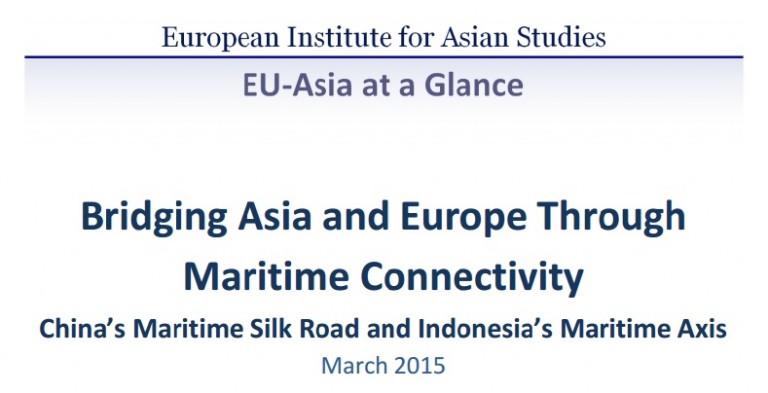In 2013, in front of the Indonesian Parliament, China’s President Xi Jinping announced the launch of a Maritime Silk Road. This massive connectivity project linking Asia and Europe encompasses the building and upgrading of maritime infrastructures. One year later, the newly-elected Indonesian President, Joko Widodo announced the project to make Indonesia a “maritime axis”. This policy, which has received strong support from Beijing, involves a boost of Indonesia’s infrastructure and maritime connectivity, fisheries, maritime diplomacy and maritime defence power. This paper analyzes these two dawning strategies. The authors address the challenges that lie ahead, and argue that a more proactive engagement from the European Union, including the European Commission and European companies, would benefit to all three actors.

